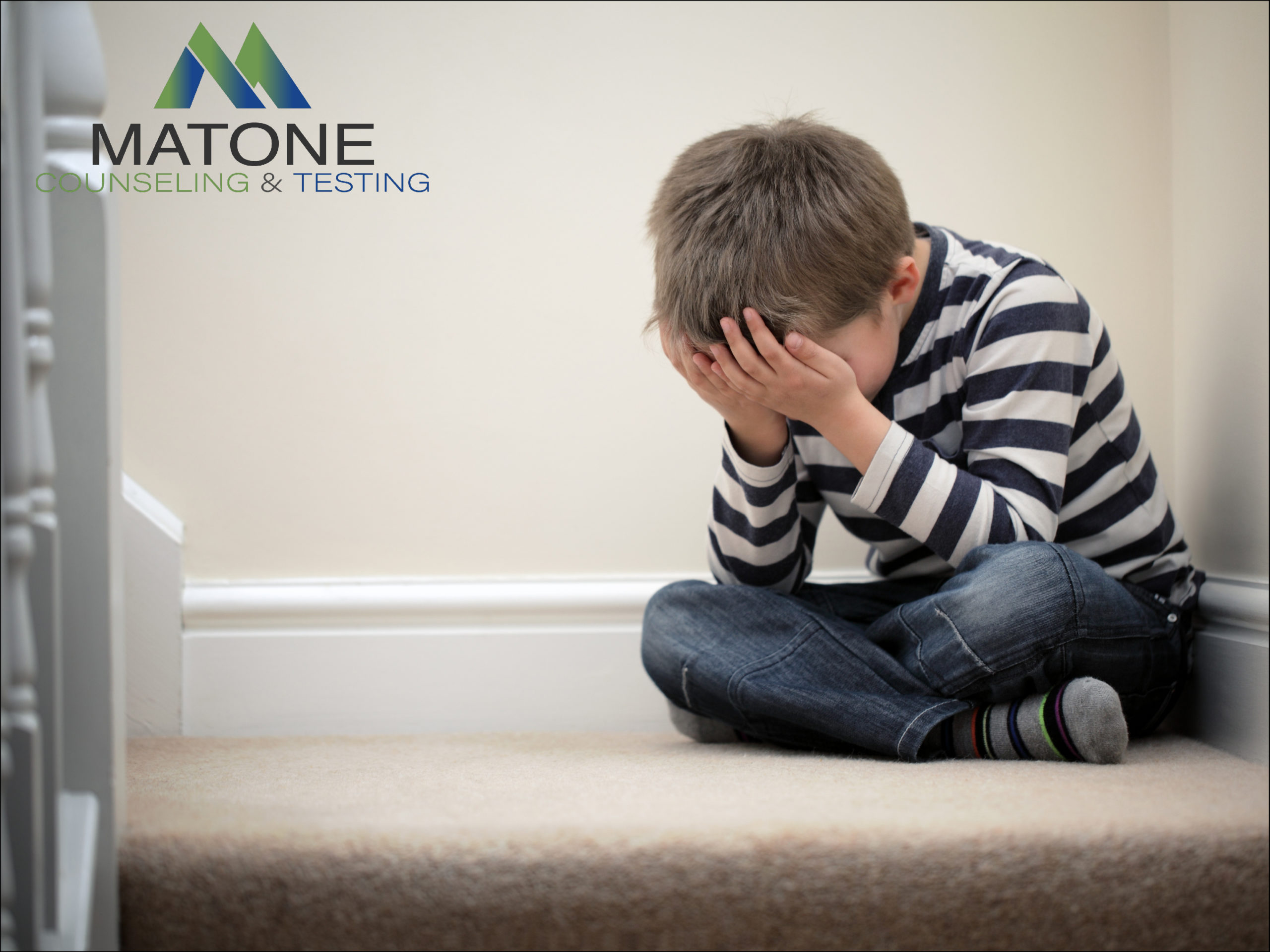Navigating Child Psychosocial Development During a Pandemic
As we approach nearly two years since the outbreak of COVID-19 in the United States, many continue to find themselves questioning what the future will hold. COVID-19 has significantly impacted mental health throughout the world due to stay-at-home orders, food and housing insecurities, homelessness, family dysfunction, lack of connection, loss of social systems in the community, and maladaptive coping skills that have led to other sources of dysfunction (Kumar & Nayar, 2020). Furthermore, the mental health of children has been disrupted at a particularly sensitive time in their psychosocial development. Current social restrictions have altered the way children play, behave, feel, relate to others, and express their emotions (Shah et al., 2020). Previous epidemics such as Ebola and SARS further illustrate the detrimental impact, social isolation, and disruption in day-to-day routines can have on children and adolescents (Brooks et al., 2020). These include exacerbated feelings of loneliness, anxiety, depression, low self-esteem, uncertainty, anger, and difficulty concentrating. Each of these emotions is often amplified by additional stress, leading to disruptive behaviors.
Signs of Stress in Children
Prior to the pandemic, caregivers, parents, and educators were already conscious of the rise in stress among children and young adults (Cowie & Myers, 2020). It is important to note that parents and caregivers previously relied on extracurricular activities, recreational centers, playgrounds, school, and many more outlets for children to express these big emotions and reduce stress levels (Fore & Hijazi, 2020). With the increase of screen-time and hampered social interactions, you may have noticed an increase in your child’s physical and emotional reactions to stress including:
● Difficulty concentrating
● Heightened tantrums
● Daily somatic symptoms (stomach aches, headaches, etc.)
● Aggressive tendencies
● Irritability/Defiance
● New or recurring fears
● Nightmares/Bedwetting
● Appetite Changes
● Withdrawing from others
● Regression
● Self-harm
● Suicidal ideation
Importance of Healthy Emotional Release
Considering these outcomes, a relationship between hampered expression of emotion and an increase in poor psychosocial behaviors is evident. Unlike adults, children are not yet mentally capable of verbally expressing their emotions in a way that paints the whole picture. This lack of emotional release can result in the child acting out their negative emotions in a manner that causes additional stress and dysfunction to caregivers (Lin & Bratton, 2015; Young, 2020). To overcome the various psychosocial barriers that COVID-19 has created for children and adolescents, it is essential for parents and caregivers to implement expressive activities that provide alternative opportunities for their children to release feelings of uncertainty, sadness, fear, and anger in a more effective way.
Relational & Expressive Activities
Scheduling as little as half an hour per week dedicated toward individual playtimes with your child can be therapeutic in the sense that it provides a structure that is essential for optimal development (Glynn et al., 2021; Landreth, 2012). Having a scheduled weekly activity provides a child with the stability necessary to reestablish their sense of safety and trust in themselves and others. You may consider taking your child for a weekly bike ride, playing with an array of toys, listening to louder-than-usual music, cooking, baking, creating art, riding scooters, or taking a walk. These relationship building activities are typically affordable, accessible, and allow children the opportunity to break sedentary habits by going outside and significantly reducing screen time (Bates et al., 2020). Participation in these activities does not require breaking social restrictions, making it possible for friends to join in as well.
Purpose and Power of Play Therapy
Each child is a unique being, especially in the way they experience and express big emotions. Some children may require additional support to explore big emotions related to new adjustments or past trauma(s). A play therapist can use their professional training to facilitate this type of expression using specific toys and techniques. Child-centered play therapy is an evidence-based practice used to treat children ages 2 to 11 that are experiencing psychosocial difficulties (Lin & Bratton, 2015). In play therapy, a child can develop strong coping skills that can continue to be utilized throughout life. These coping skills promote self-regulation, effective problem solving, empathy, self-esteem, and much more. Play therapists and other mental health clinicians are also capable of sharing important ways parents and caregivers can alter their approach to best meet the needs of the child and enhance family functioning. Together, the child can experience an increased system of support and is provided the resources necessary for psychosocial development.
Start Here
During these unprecedented times, it is important to remember that we are all doing the best we can with what we have. This is true for both caregivers and children. Consider shifting your view of ‘difficult’ behaviors by reminding yourself that your child is not giving you a hard time, they are having a hard time. Children experience so much growth in such a short amount of time, making it unfair to assume that they will behave the same way tomorrow that they have today. Begin each day with a fresh start and take the time to acknowledge the underlying emotions that influence such behaviors. If your child is exhibiting increased disruptive behaviors and feelings listed in this article or you have lingering questions regarding your child’s mental health, it is important to speak with a professional to determine the appropriate treatment needed to support your child’s psychosocial development.

Amanda Dixon,Counseling Intern
As a future counselor, Amanda is particularly interested in working with children through the power of child-centered play therapy to promote healing and strengthen development.
References
Bates, L., Zieff, G., Stanford, K., Moore, J., Kerr, Z., Hanson, E., Barone Gibbs, B., Kline, C., & Stoner, L. (2020). COVID-19 impact on behaviors across the 24-hour day in children and adolescents: Physical activity, sedentary behavior, and sleep. Children, 7(9), 138. https://doi.org/10.3390/children7090138
Brooks, S. K., Webster, R. K., Smith, L. E., Woodland, L., Wessely, S., Greenberg, N., & Rubin, G. J. (2020). The psychological impact of quarantine and how to reduce it: Rapid review of the evidence. The Lancet, 395(10227), 912–920. https://doi.org/10.1016/s0140-6736(20)30460-8
Cowie, H., & Myers, C. (2020). The impact of the COVID‐19 pandemic on the mental health and well‐being of children and young people. Children & Society, 35(1), 62–74. https://doi.org/10.1111/chso.12430
Fore, H. H., & Hijazi, Z. (2020, May 1). COVID-19 is hurting children’s mental health. Here’s how to help. World Economic Forum. https://www.weforum.org/agenda/2020/05/covid-19-is-hurting-childrens-mental-health/
Glynn, L. M., Davis, E. P., Luby, J. L., Baram, T. Z., & Sandman, C. A. (2021). A predictable home environment may protect child mental health during the COVID-19 pandemic. Neurobiology of Stress, 14, 100291. https://doi.org/10.1016/j.ynstr.2020.100291
Kumar, A., & Nayar, K. R. (2020). COVID 19 and its mental health consequences. Journal of Mental Health, 30(1), 1–2. https://doi.org/10.1080/09638237.2020.1757052
Landreth, G. (2012). Play therapy the Art of The Relationship (3rd ed.). New York: Routhledge
Lin, Y. W., & Bratton, S. C. (2015). A meta-analytic review of child-centered play therapy approaches. Journal of Counseling & Development, 93(1), 45–58. https://doi.org/10.1002/j.1556-6676.2015.00180.x
Shah, K., Mann, S., Singh, R., Bangar, R., & Kulkarni, R. (2020). Impact of COVID-19 on the mental health of children and adolescents. Cureus. Published. https://doi.org/10.7759/cureus.10051
Young, K. (2020, August 17). Dealing with Big Feelings – Teaching Kids How to Self-Regulate. Hey Sigmund. https://www.heysigmund.com/how-to-self-regulate/




